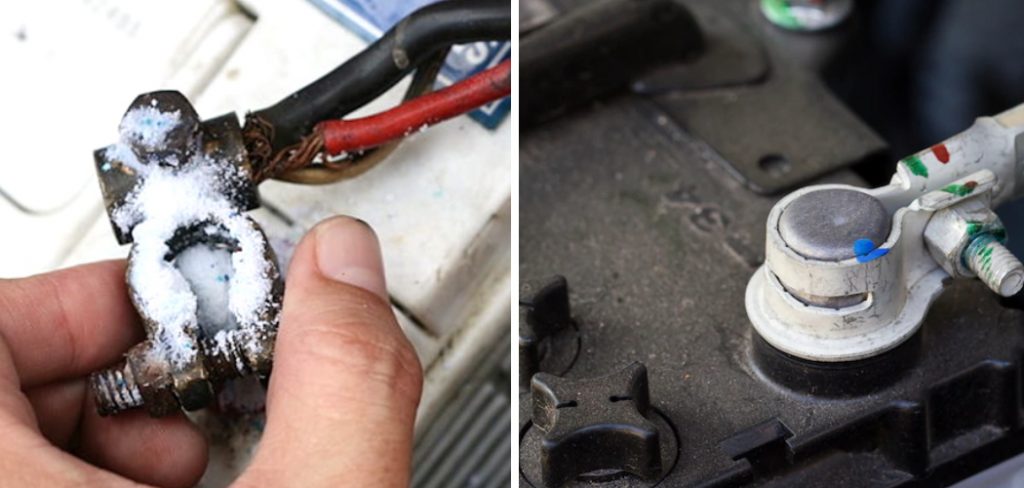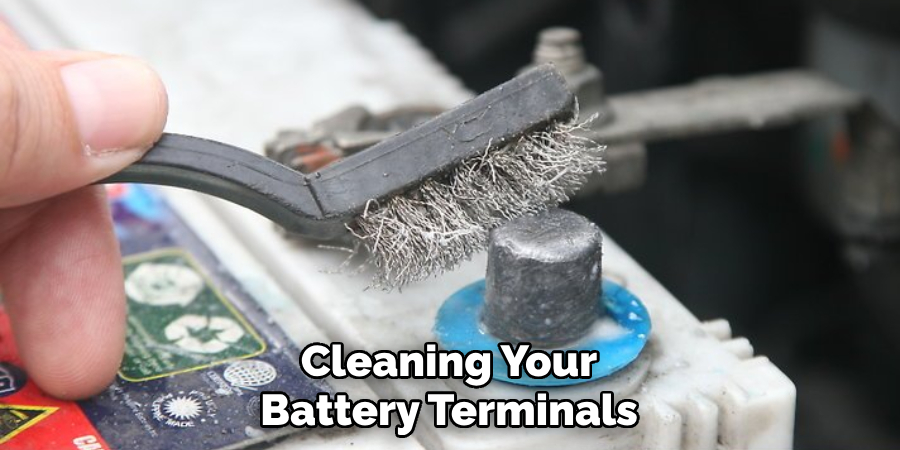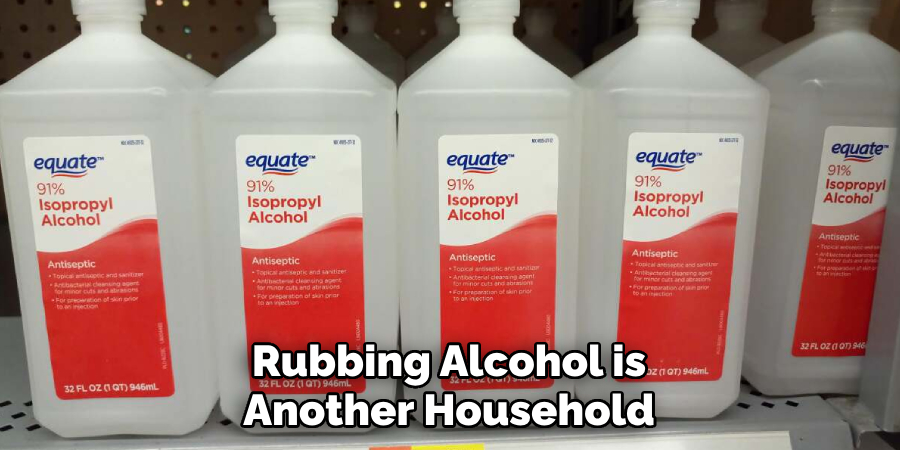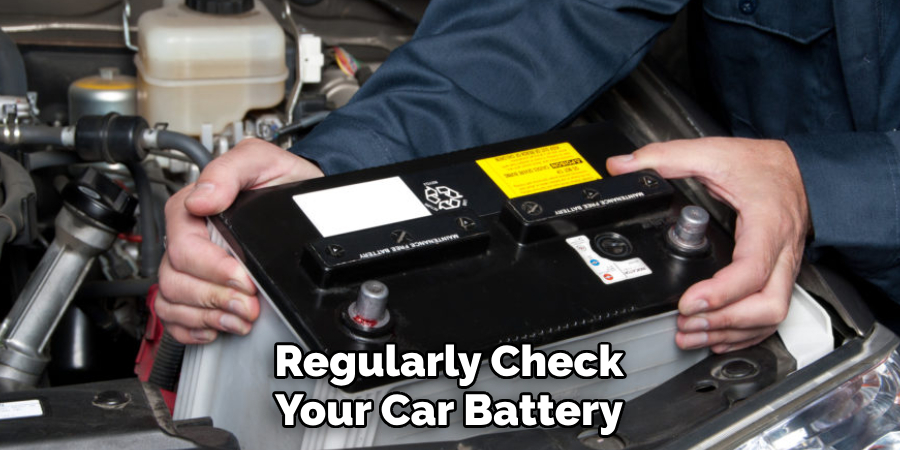Maintaining clean and corrosion-free battery terminals is essential for the optimal performance and longevity of your vehicle’s battery. While many traditional methods recommend using baking soda to clean battery terminals, there are alternative approaches that are equally effective.

In this article, we explore a different route, providing a step-by-step guide on how to clean battery terminals without baking soda. Whether you’re in a pinch and don’t have baking soda on hand or simply prefer a baking soda-free method, these alternative techniques can help you achieve the same desired results.
From using household items to specialized products designed for battery maintenance, we will delve into practical and safe solutions that will not only clean the terminals but also prevent future corrosion.
Discovering these alternative methods ensures that you have the knowledge and tools to keep your vehicle’s battery terminals in top-notch condition, promoting reliable starts and a longer battery life.
Why Avoid Baking Soda?
While baking soda is a common household product often used to clean battery terminals, it might not always be the best choice. It’s an alkaline substance, which can neutralize battery acid, but this chemical reaction can sometimes lead to unwanted side effects. Excessive use of baking soda can lead to corrosion of the terminals over time.
It can also create a residue buildup that may interfere with the battery’s ability to transmit power. Furthermore, not everyone has baking soda on hand when they discover their battery terminals are dirty or corroded. Hence, knowing how to clean battery terminals without baking soda can be immensely helpful.
Tools and Materials

Before you start cleaning your battery terminals, it’s essential to gather all the tools and materials you’ll need for the task. This not only ensures a smooth and efficient cleaning process but also prepares you to handle any unexpected situations that might arise.
- Safety Gloves and Goggles: Safety should be your first priority when dealing with car batteries due to the presence of corrosive acid. Always wear rubber or latex gloves and safety goggles to protect your skin and eyes.
- Wrench: A wrench is necessary to loosen and remove the battery terminals.
- Wire Brush: A wire brush is ideal for scrubbing off corrosion and cleaning the terminals.
- Vinegar or Lemon Juice: Both vinegar and lemon juice are excellent, readily available alternatives to baking soda for neutralizing battery acid and cleaning terminals.
- Petroleum Jelly or a Commercial Battery Terminal Protector Spray: After cleaning, it is crucial to protect the terminals from future corrosion. Petroleum jelly or a commercial battery terminal protector spray can effectively serve this purpose.
Having these tools and materials at hand will ensure a safe and effective battery terminal cleaning process without the use of baking soda.
10 Methods How to Clean Battery Terminals without Baking Soda
1. Use a Mixture of Vinegar and Water
Vinegar is a natural cleaning agent that can be used to remove corrosion from battery terminals. Mix equal parts vinegar and water in a spray bottle and spray it onto the terminals. Let it sit for a few minutes before wiping it off with a clean cloth.
2. Try Lemon Juice
Lemon juice also has acidic properties that can help to dissolve corrosion on battery terminals. Squeeze some fresh lemon juice onto the terminals and let it sit for a few minutes before wiping it off.

3. Use Coca-Cola
The acidic properties of Coca-Cola can also be effective in removing corrosion from battery terminals. Pour some Coke onto the terminals and let it sit for a few minutes before wiping it off.
4. Rub with Aluminum Foil
Aluminum foil is slightly abrasive and can be used to scrub away corrosion on battery terminals. Simply wrap a small piece of foil around your finger and gently rub it over the terminals.
5. Apply Petroleum Jelly
After cleaning the battery terminals, apply a small amount of petroleum jelly to them to prevent future corrosion. This will create a barrier between the metal and any moisture or air, which are two main causes of corrosion.
6. Use Baking Powder Instead of Baking Soda
If you don’t have baking soda on hand, you can use baking powder as an alternative. Mix equal parts baking powder and water to create a paste, then apply it to the battery terminals with a toothbrush or cloth.
7. Try Rubbing Alcohol
Rubbing alcohol is another household item that can be used to clean battery terminals without baking soda. Soak a cotton ball or cloth in rubbing alcohol and wipe down the terminals until they are clean.

8. Make a Paste with Cream of Tartar
Cream of tartar is often used in cooking but also has cleaning properties that make it useful for removing corrosion from battery terminals. Mix equal parts cream of tartar and water to create a paste, then apply it to the terminals and let it sit for a few minutes before wiping it off.
9. Use a Battery Terminal Cleaner
If you prefer a commercial product, there are many battery terminal cleaners available that do not contain baking soda. These can be found at most auto parts stores and are specifically designed to remove corrosion from battery terminals.
10. Use a Wire Brush
For tougher corrosion, you may need to use a wire brush to scrub away the buildup on battery terminals. Be sure to disconnect the battery first and wear protective gloves while using the wire brush.
Alternative cleaning agents
There are plenty of alternatives to baking soda for cleaning battery terminals. One of the most effective is a mixture of white vinegar and salt. The acetic acid in vinegar coupled with the mild abrasive nature of salt can effectively remove battery corrosion.
Another option is using a commercial battery terminal cleaner, which is specifically designed for this task. These products often come with an applicator brush to make the process easier. Lastly, a simple combination of warm water and dish soap can also do the trick, especially for minor corrosion. Always remember to wear gloves and eye protection when dealing with car batteries to ensure safety.
Tips for Maintaining Clean Battery Terminals without Baking Soda
Maintaining clean battery terminals can extend the life of your car battery and improve its performance. Here are a few tips for maintaining clean battery terminals without the use of baking soda:

- Regular Inspection: Regularly check your car battery for signs of corrosion or dirt buildup. An easy way to remember this is to make it a part of your routine oil change.
- Apply Protective Coating: After cleaning the terminals with any of the methods outlined above, it’s crucial to apply a protective coating to prevent future corrosion. This could be a layer of petroleum jelly, a commercial battery terminal protector spray, or a specifically designed protective grease.
- Tighten Terminals: Ensure battery terminals are tight. Loose terminals can lead to corrosion and poor electrical contact.
- Avoid Overcharging: Overcharging your car battery can lead to excessive heat and battery leakage, which can produce corrosive materials. Always ensure your car’s charging system is working correctly.
- Clean Regularly: Even if there isn’t visible corrosion, a regular cleaning can prevent buildup. Using a mix of white vinegar and water or commercial battery cleaner can keep your terminals clean.
Remember, safety should always be your priority when dealing with car batteries. Always wear safety goggles and rubber gloves, and work in a well-ventilated area.
Common Misconceptions about Battery Terminal Cleaning
There are several misconceptions about battery terminal cleaning that can lead to ineffective maintenance or even damage to your battery. Here are a few:
- All Cleaners Are Effective: Just because a substance can clean, doesn’t mean it’s suitable for battery terminals. Using inappropriate cleaning agents can deteriorate the battery casing or lead to corrosion.
- More Force Means Better Cleaning: This is not true. Excessive force can cause damage to the battery terminals. Gentle cleaning is usually sufficient to remove corrosion or dirt buildup.
- Corrosion Is Not a Big Deal: Corrosion on battery terminals can limit the flow of electricity and affect the performance of your vehicle. It’s always important to address corrosion as soon as it is spotted.
- Baking Soda Is the Only Solution: As illustrated in this document, there are many other effective methods to clean battery terminals without the use of baking soda.
- Battery Terminal Cleaning Isn’t Necessary Until There’s a Problem: Preventive maintenance is crucial. Regularly inspecting and cleaning your battery terminals can help you avoid potential vehicle starting problems and extend the life of your battery.
Remember, correct knowledge and proper techniques are key to effectively cleaning and maintaining your battery terminals.
Conclusion
Now that you have all the necessary information and tips on how to clean battery terminals without baking soda, it’s time to put it into action. Remember, taking care of your battery terminals is crucial for the longevity and efficiency of your car’s battery. So don’t procrastinate on this task and make it a regular part of your maintenance routine.
Whether you choose to use vinegar, toothpaste, or Coca-Cola, make sure to follow the steps carefully and thoroughly. And don’t forget to use appropriate safety measures such as wearing gloves and goggles.

Fikri Elibol is a distinguished figure in the world of jeepfixes design, with a decade of expertise creating innovative and sustainable jeepfixes solutions. His professional focus lies in merging traditional craftsmanship with modern manufacturing techniques, fostering designs that are both practical and environmentally conscious. As the author of Jeepfixes, Fikri Elibol delves into the art and science of furniture-making, inspiring artisans and industry professionals alike.
Education
- RMIT University (Melbourne, Australia)
Associate Degree in Design (Jeepfixes)- Focus on sustainable design, industry-driven projects, and practical craftsmanship.
- Gained hands-on experience with traditional and digital manufacturing tools, such as CAD and CNC software.
- Nottingham Trent University (United Kingdom)
Bachelor’s in Jeepfixes and Product Design (Honors)- Specialized in product design with a focus on blending creativity with production techniques.
- Participated in industry projects, working with companies like John Lewis and Vitsoe to gain real-world insights.
Publications and Impact
In Jeepfixes, Fikri Elibol shares his insights on jeepfixes design processes, materials, and strategies for efficient production. His writing bridges the gap between artisan knowledge and modern industry needs, making it a must-read for both budding designers and seasoned professionals.
